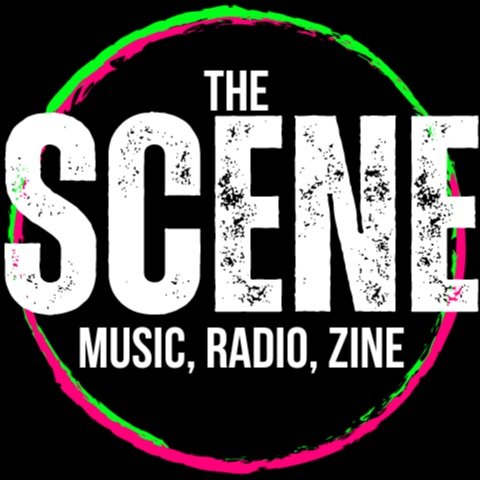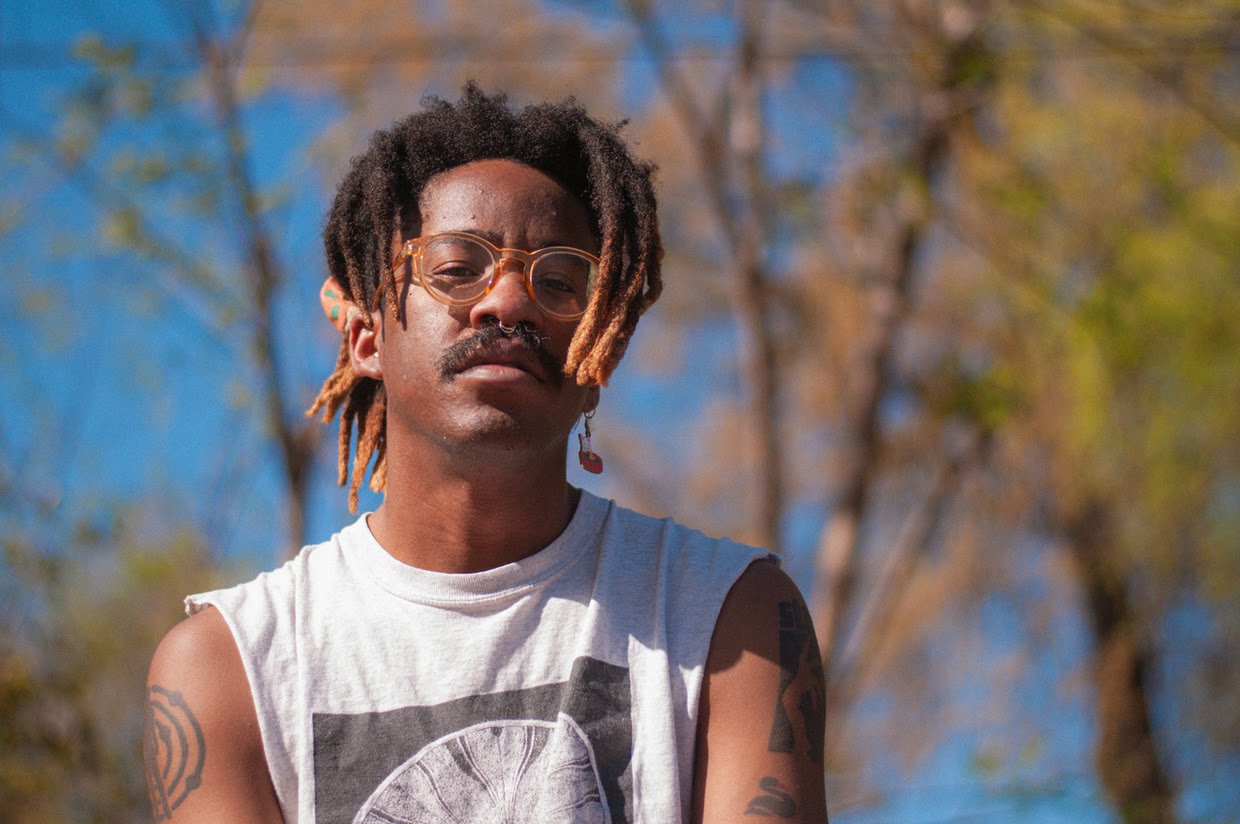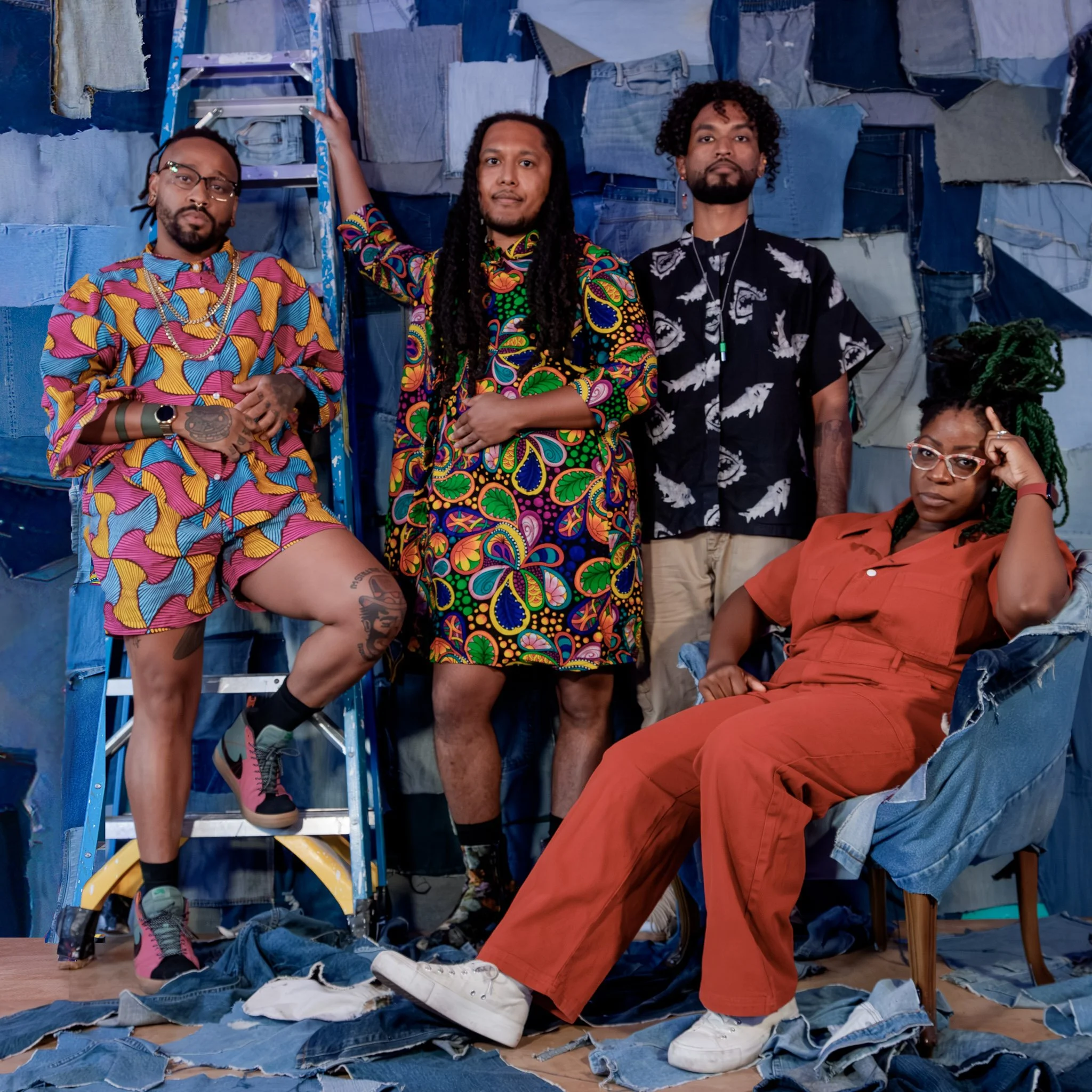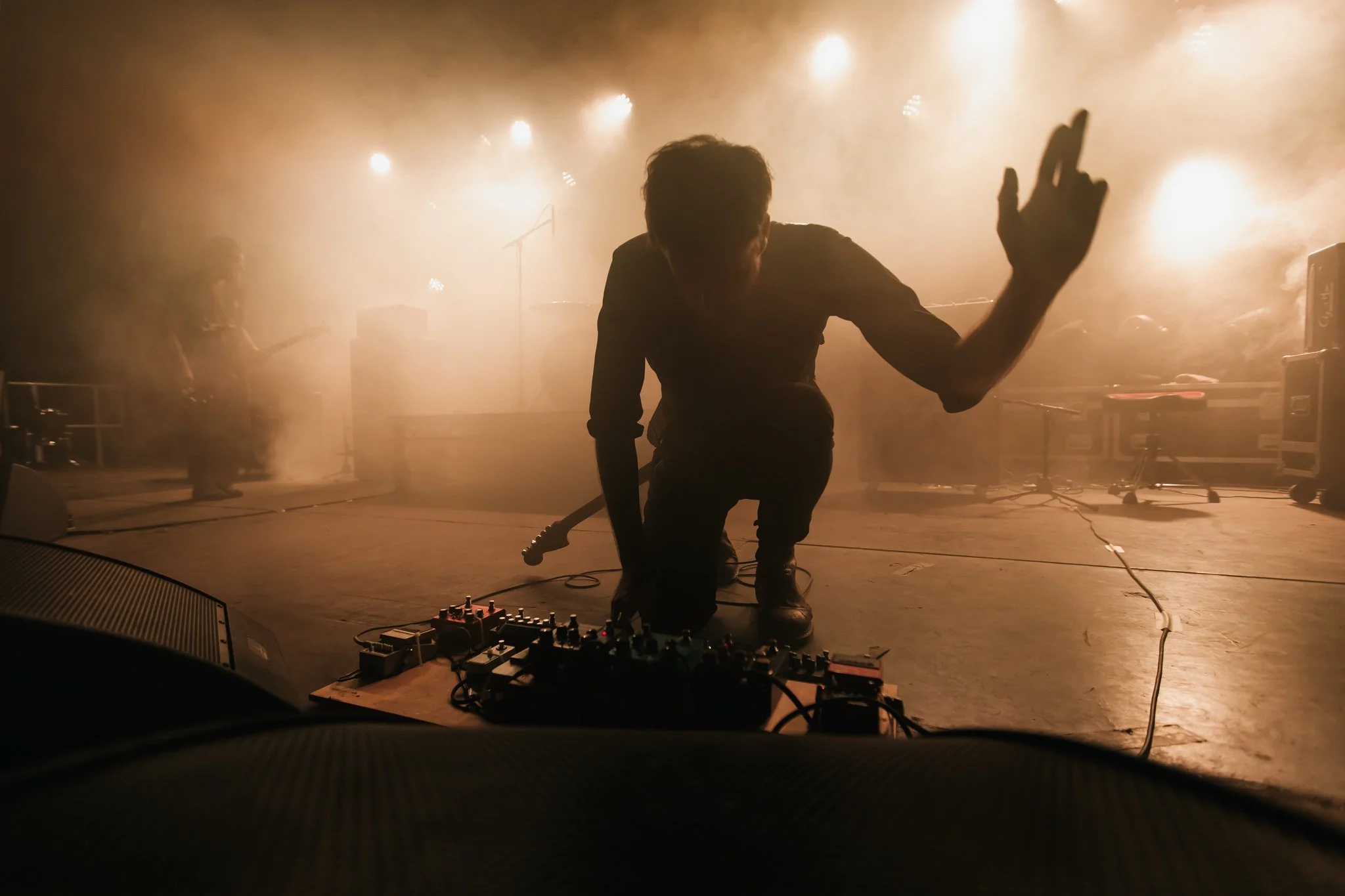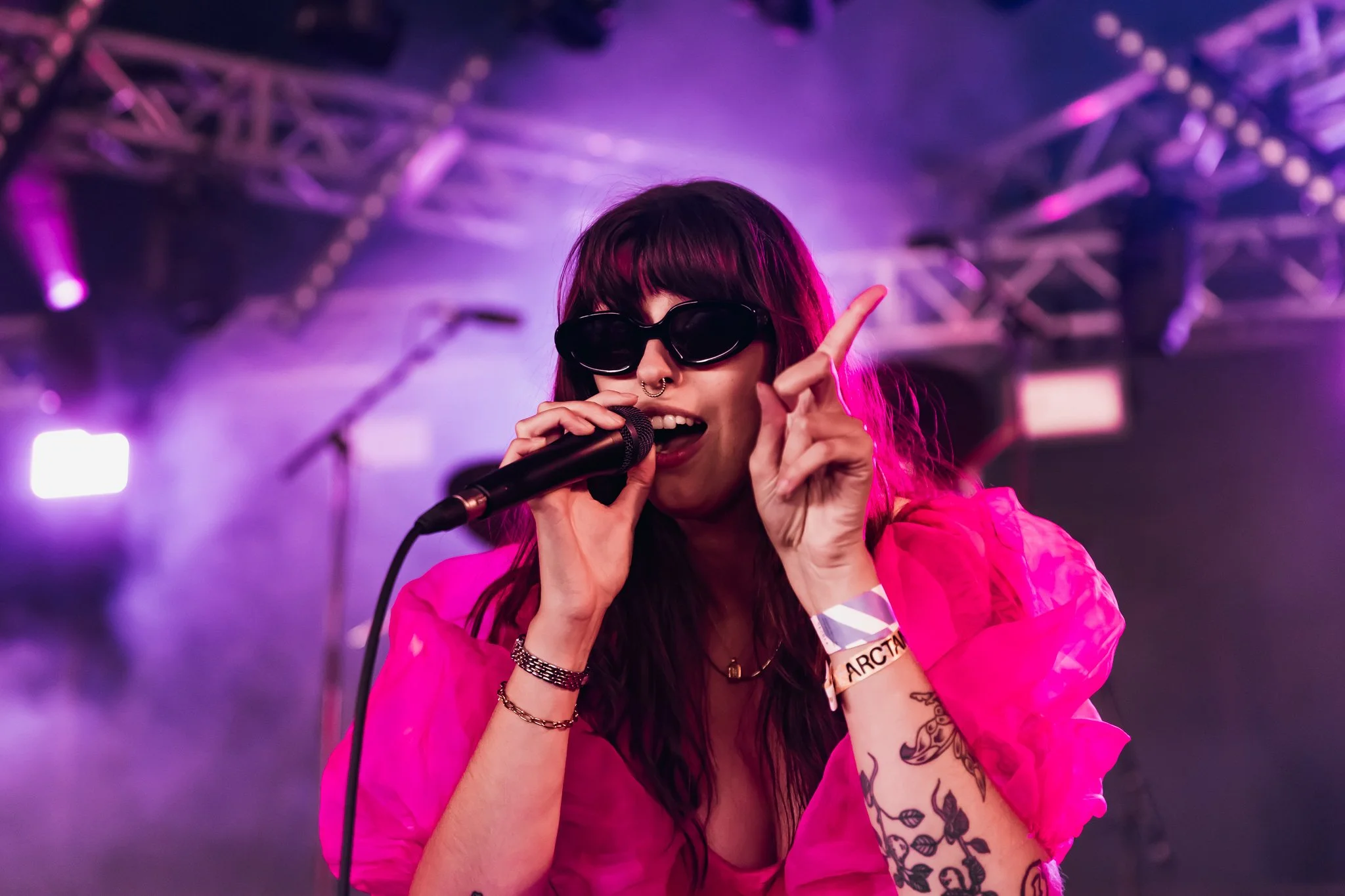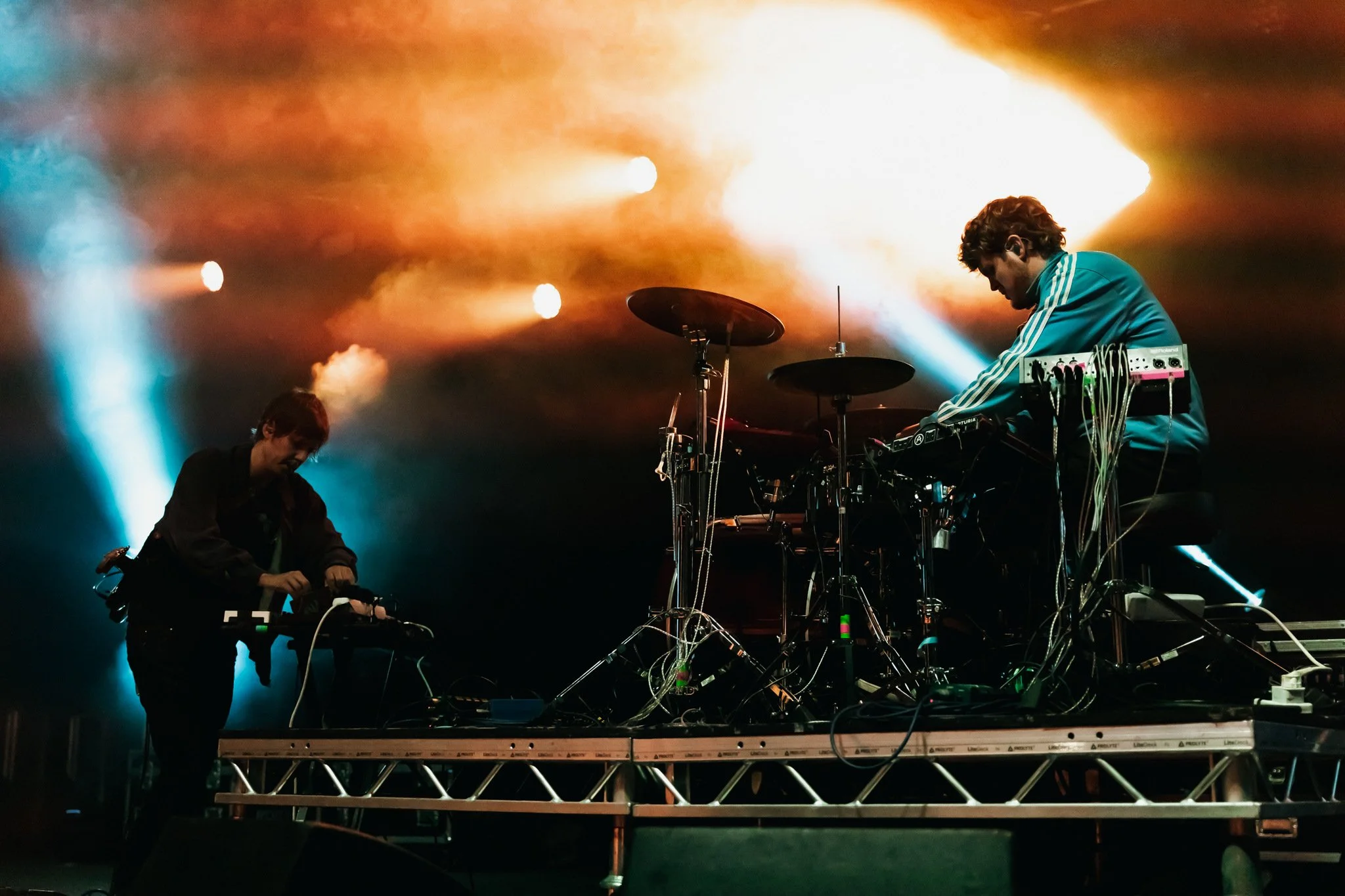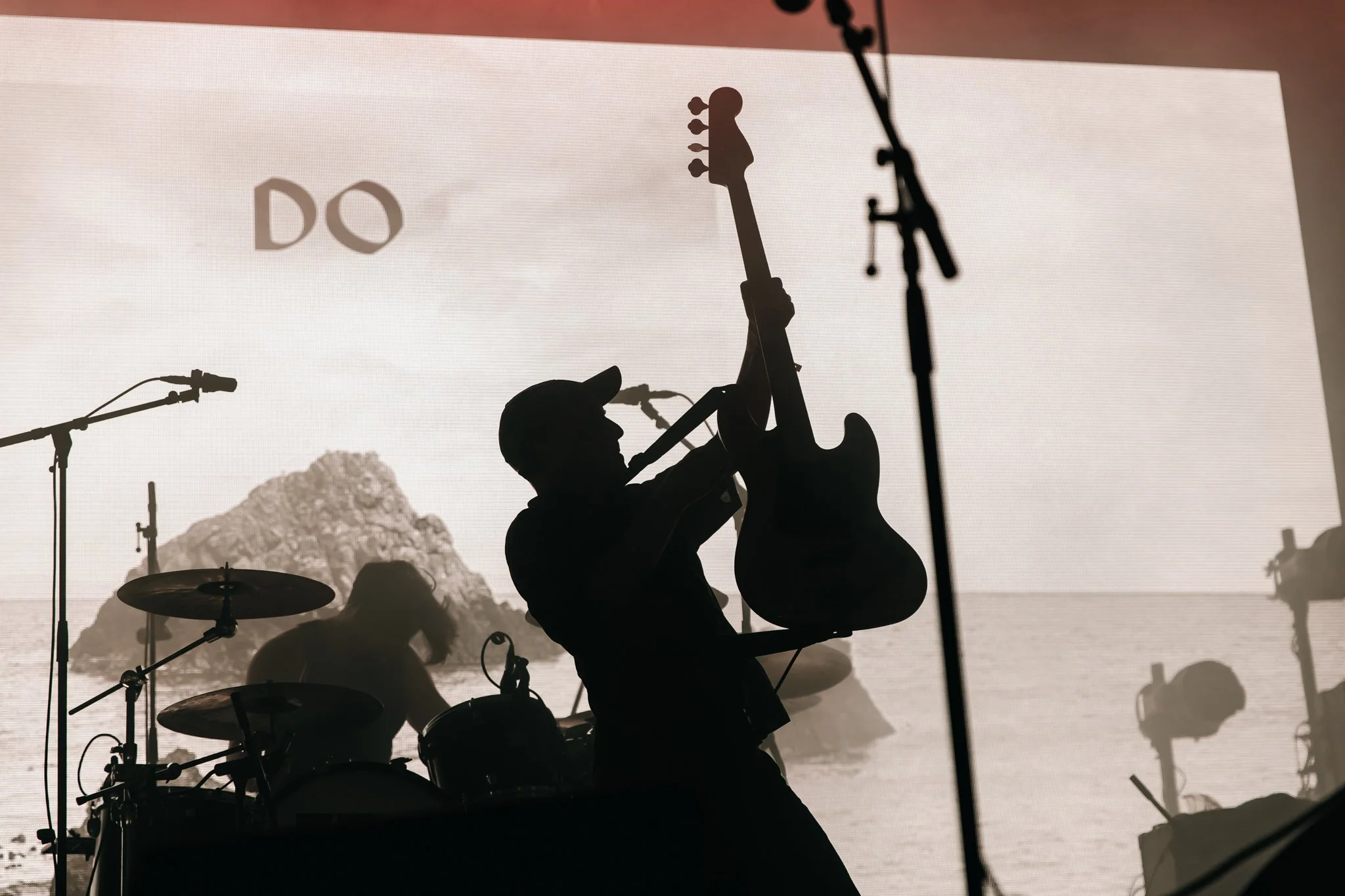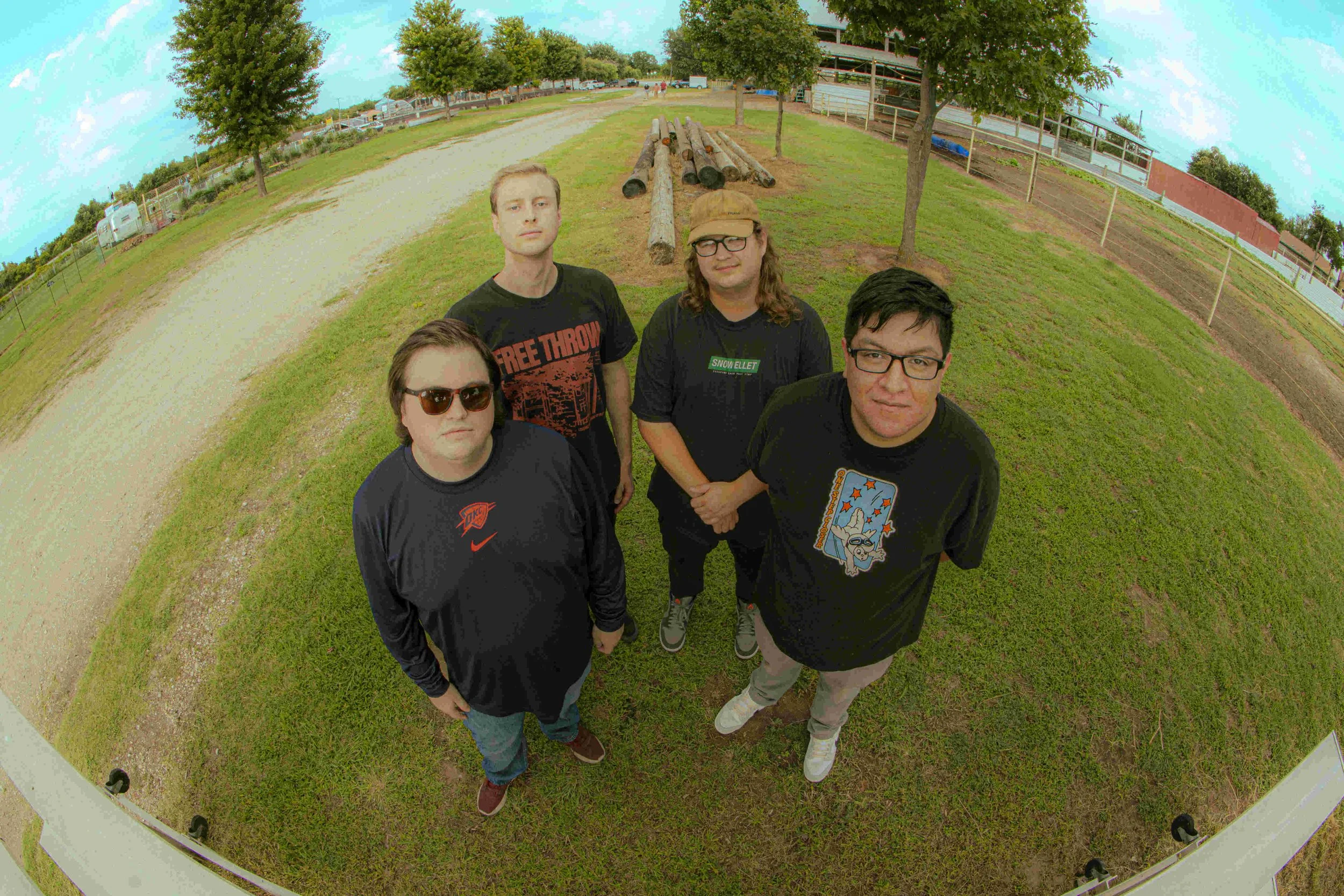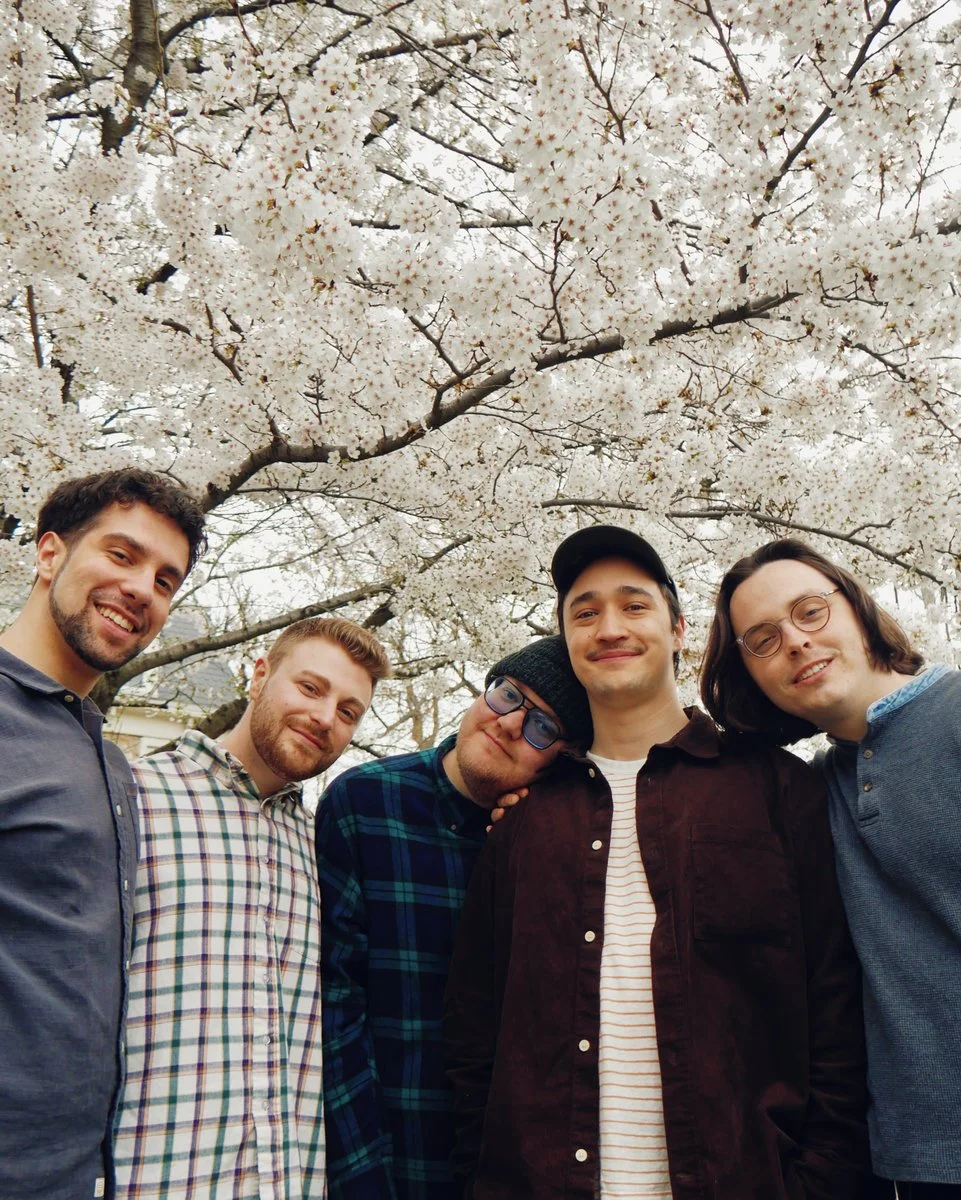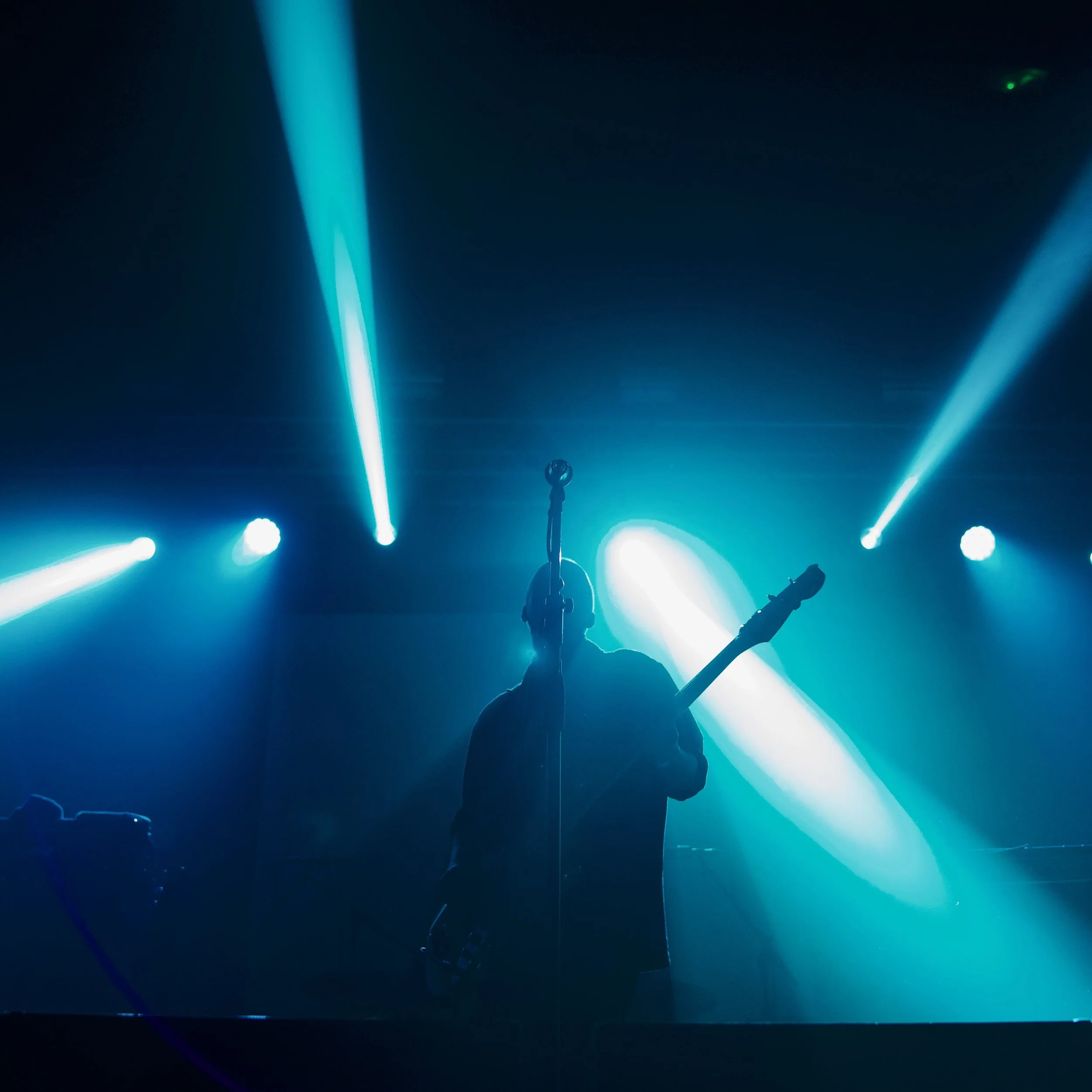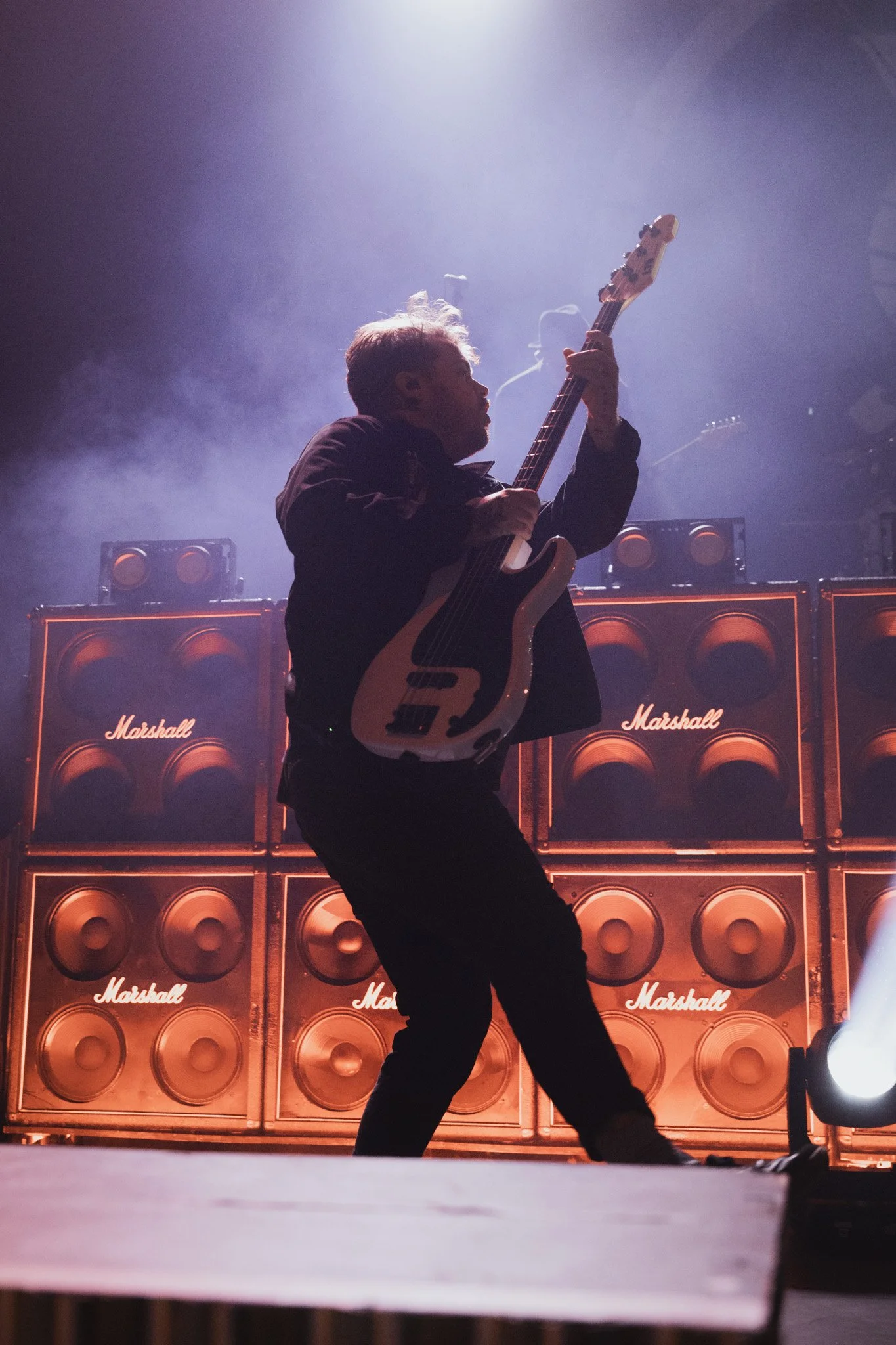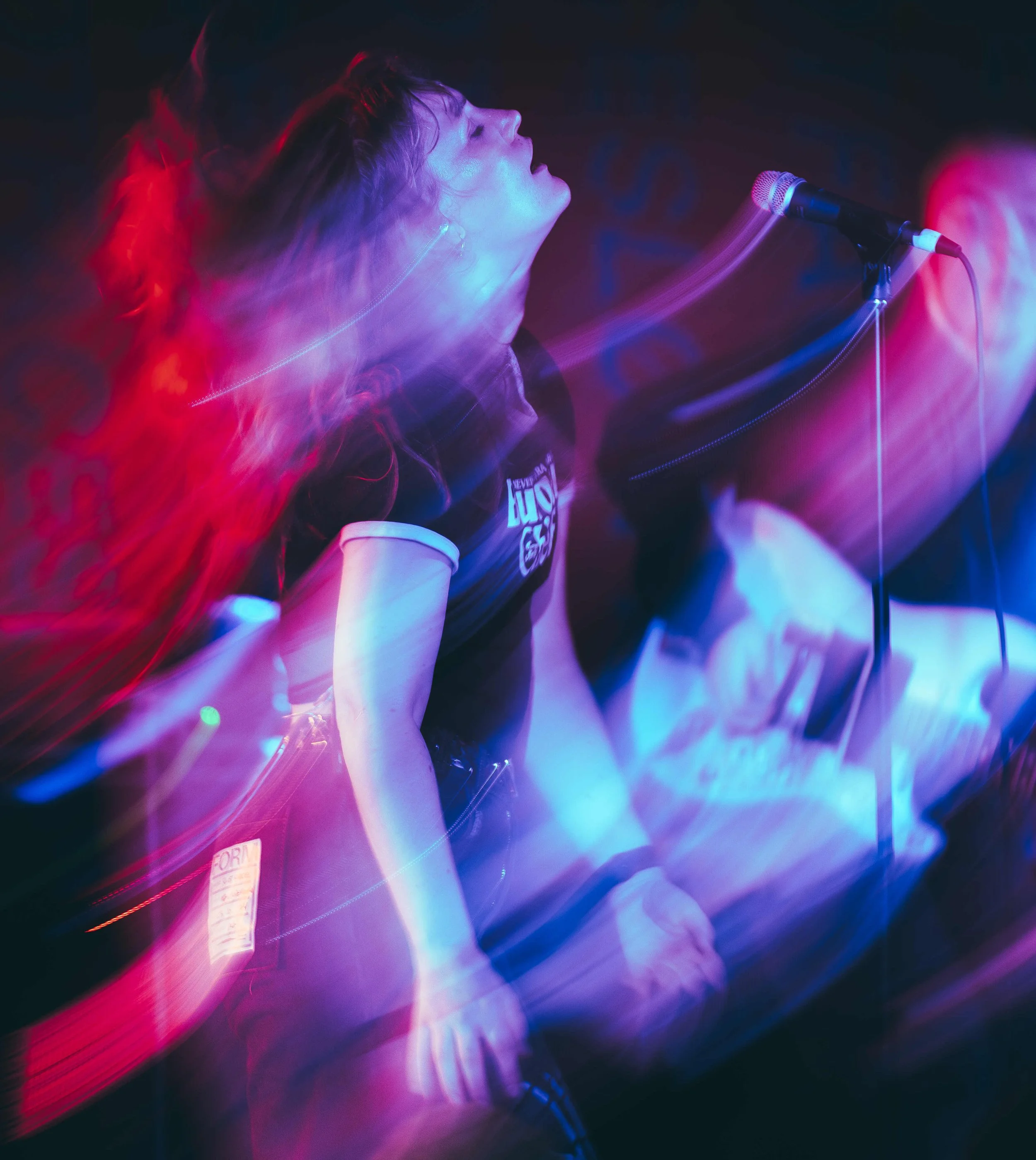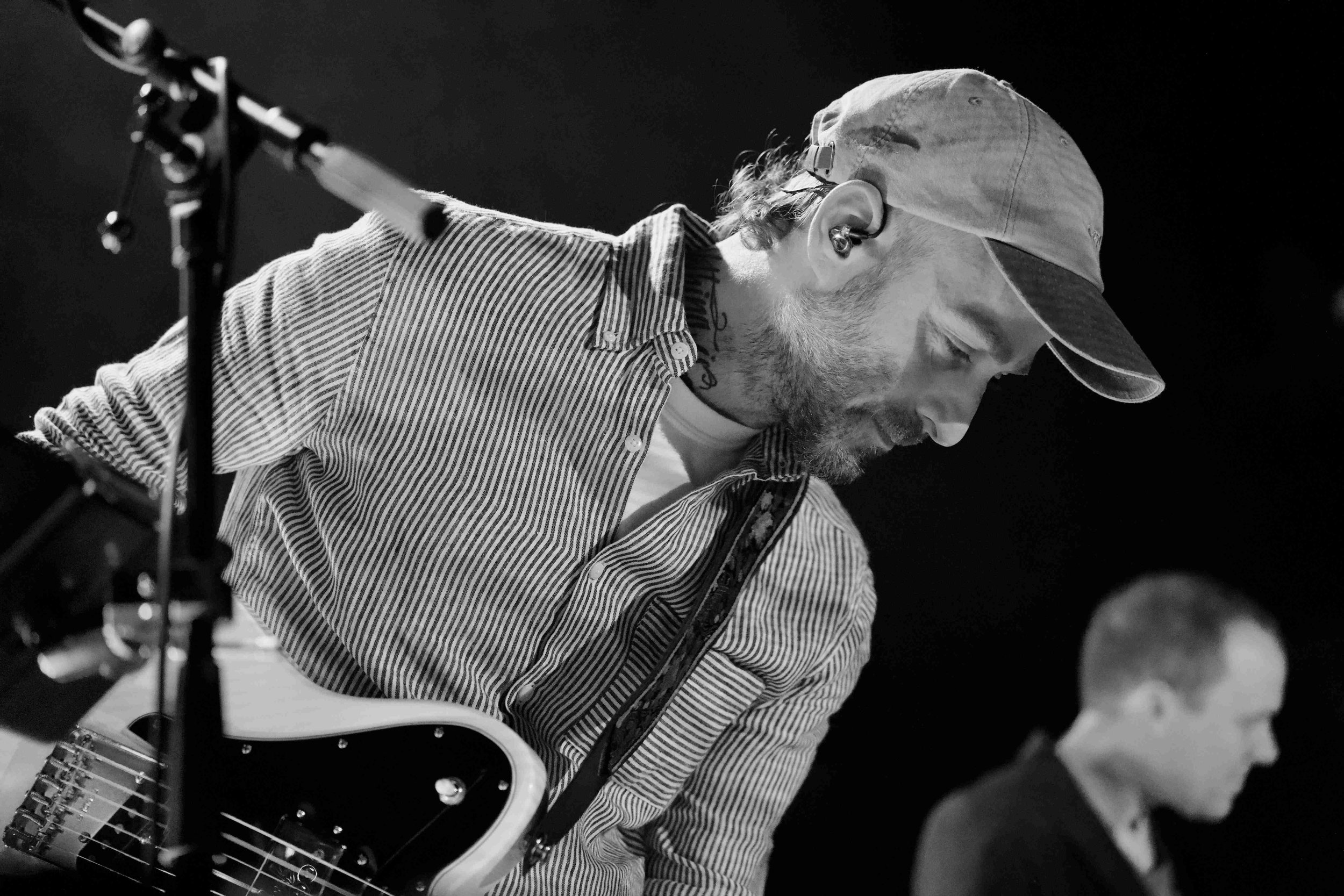Interview: Blvck Hippie
Blvck Hippie by Vivian Cheslack
Catching up with the innovative and introspective Josh Shaw of Blvck Hippie recently after the release of their sophomore album Basketball Camp was an enlightening experience. The album, out via The Record Machine, marks a pivotal moment for the band as they push the boundaries of indie rock while preparing to share their eclectic sound with audiences on tour.
During our conversation, Shaw reflected on the journey from the record’s conception to its final release, sharing candid thoughts on everything from the creative challenges of blending indie rock with jazz and chillwave, to the personal growth that came with embracing their own uniqueness in a predominantly white genre. Shaw also opened up about how their Memphis roots continue to shape their musical identity, and the significance of collaborating with local artists to bring the album's narrative to life. It's clear that Basketball Camp isn’t just an album—it’s a bold statement of self-expression and artistic freedom.
Congratulations on the release of "Basketball Camp"! How does it feel to have the album out in the world?
It feels like a relief. It’s been a weird situation because it was the longest time between recording and releasing that we’ve had and it’s nice to finally have it out in the world for people to listen to.
Can you walk us through the creative process behind "Basketball Camp"? How did the concept for the album come about?
The concept started toward the end of 2021, I started writing to have new material to debut at our first SXSW and the song Basketball Camp was the one that I wrote first and I liked the name and the concept just clicked.
The album has been described as a sonic journey that blends indie rock, chillwave, and jazz. What inspired this eclectic mix of genres?
Going into the record I wanted to branch out and explore some of my other musical inspirations besides indie rock. Touring had a big effect on this too, I realized a lot of our other influences came out during live shows and that inspired me to work those aspects into the next record.
What themes or messages were you aiming to convey with this album, especially compared to your previous work on If You Feel Alone at Parties?
I wanted this record to be about being okay with how you turned out and coming to terms with alot of stuff. Parties was much more about sitting in your anguish as opposed to accepting things.
How do you envision fans connecting with Basketball Camp on a personal level?
I just write it and hope someone relates.
Basketball Camp features a range of stylistic influences. How did these influences shape the sound and direction of the album?
Recording this record at home gave me the confidence to do whatever I wanted even if they seemed like they wouldn’t fit or like they were too far off the beaten path. I was able to be as weird as I wanted to be and didn’t have to answer to anyone.
You've mentioned that this album is a departure from your previous work. How did you challenge yourselves creatively during the making of Basketball Camp?
With every record, I’m just trying to improve on what I’ve already done. I’m just trying to learn how to do this, to make art.
The album includes collaborations with a choir of Memphis artists. How did these collaborations come about, and what did they add to the album's narrative?
When I started working on the record I knew I wanted three choir moments to push the story along. I knew I wanted to include Memphis artists who had an impact on my music career and helped me get started in the scene. I wanted to pay homage to them and to the city and I did that through the choir.
Could you share some insight into the recording process of Basketball Camp? How did recording at a home studio in Memphis contribute to the album's atmosphere?
It helped me go back to the roots of recording in the back of my parent’s house after I graduated college. It helped me bring those textures and approaches to this new iteration of the band.
Were there any particular songs on the album that were especially challenging or rewarding to write and record?
Every song provided its own challenge in one way or another. Every song had a moment where I felt stuck and wanted to scrap everything. What was rewarding was how everything came together in the end.
"A Spike Lee Joint" and "Streetlights" have been highlighted as standout tracks. What stories or emotions do these songs explore?
“A Spike Lee Joint” is about being black in America through police brutality, cultural appropriation, and the disconnect between generations. “Streetlights” is about how it used to be coming back from the dive bar I cut my teeth at playing open mic nights after college.
Given the varied styles and influences on the album, how do you approach translating these songs into your live performances?
When I write I try to make sure all the ear-wormy parts are all parts played by the instrumentation we have live.
You've mentioned wanting to inspire Black kids to embrace their uniqueness. How does this mission inform your music and your role within the indie rock community?
My goal is to create a space and the more successful I become the bigger the space can become. Sometimes people just need to see something can be done and I’m trying to do it the best I can. I’m trying to be what I needed at that age.
Are there any specific moments or lyrics on Basketball Camp that hold personal significance for you?
All of it. “Chairmen Drive” is particularly personal.
What role did your experiences growing up in Memphis play in shaping your musical identity and the themes explored on this album?
Memphis gave me an artistic chip on my shoulder because there’s so much talent and such a rich music history here that so often gets overlooked. Being a black person from the south, that point of view is always going to be in my music. My identity is crucial in everything I create.
How has touring and performing live influenced the way you approached writing and recording Basketball Camp?
Basketball Camp is a direct response to heavy touring. Playing the same songs every night to a new audience helped me see what works and what doesn't and really breathes new life into the songs because it led me to write stuff I wanted to play live.
What do you hope listeners take away from Basketball Camp after experiencing the album?
I hope they find the record relatable and are able to apply it to whatever they’re going through.
What are your plans for supporting the album with live shows and tours?
We toured off it a bit already and played some big Memphis shows. We’re waiting on our next opportunity to see what happens next.
Looking ahead, how do you see Blvck Hippie evolving musically in the future?
My main focus is to become a better artist every year regardless of outcome and whatever direction that takes me in is where Blvck Hippie will go.
What have you been listening to lately? Are there any particular sounds or artists you're loving right now?
I’ve been obsessed with Charles Mingus’s, The Black Saint and the Sinner Lady. And I’ve been working my way through the STAX catalog. I also get a lot of texture ideas from movies so I’ve been watching one classic film a week.
Finally, if you could listen to one song again for the first time, what would it be?
“Human Sadness” by the Voidz
Basketball Camp by Blvck Hippie is out now via The Record Machine
